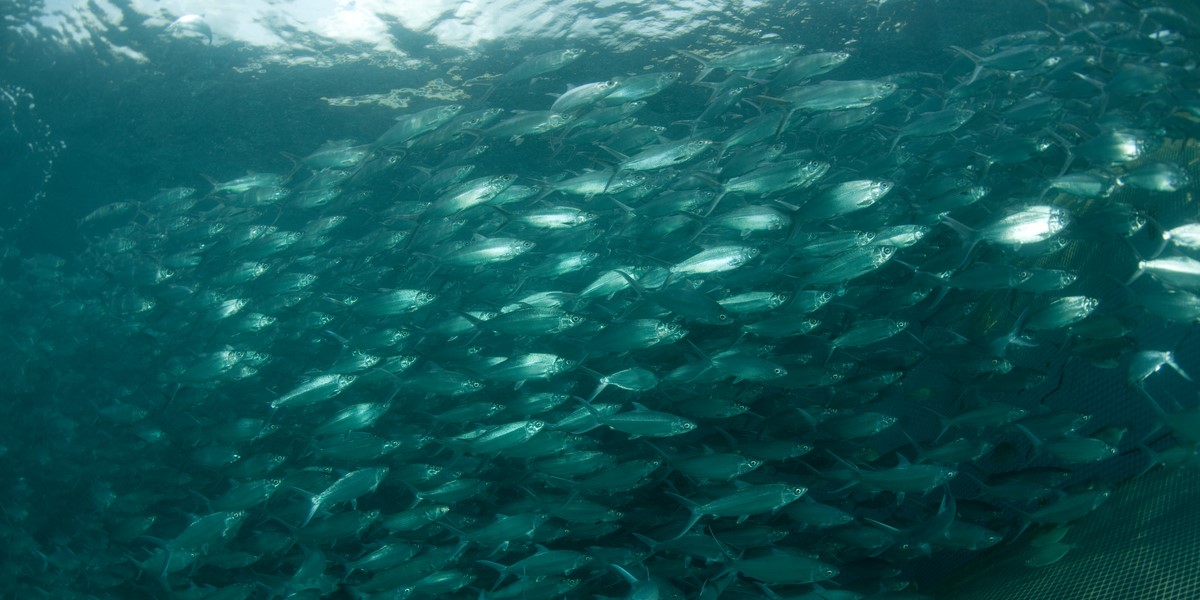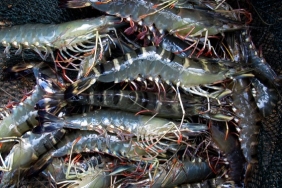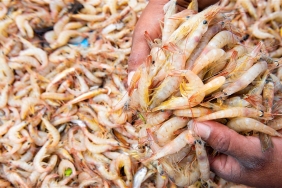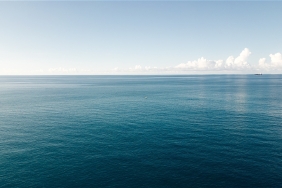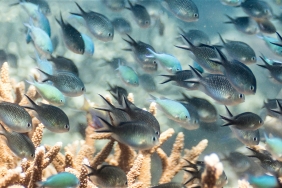SEAFOOD SAVERS AS A GATEWAY TO SUSTAINABLE AQUACULTURE PRODUCT CERTIFICATION KNOWLEDGE
By: Anindita Sekar Jati (Seafood Savers Communication Assistant, WWF-Indonesia)
Since 1970, the popularity of ecolabeling has increased in line with the urgency of the food safety situation and the availability of dwindling resources. Al Gore (2014) revealed that one of the factors that need to be taken into account in carrying out daily activities is the acceleration of unsustainable growth, both in terms of population increase in large cities, resource consumption, water supply, and other things, including economic output measured and guided by the universally accepted metric absurd, which blinds us to the damage that can be caused by the choices we make, .
All of these things are one of the drivers of WWF-Indonesia's participation to contribute to the 2016 Asian-Pacific Aquaculture (APA 2016) held at Grand City Surabaya. The event organized by World Aquaculture Society involved hundreds of aquaculture activities, both from production and technology of marine and freshwater aquaculture. Running for 4 days, from April 26th to April 29th, 2016, the event was also hosted by the Ministry of Marine Affairs and Fisheries (KKP). Apart from being a discussion platform for industry players to expand their business network, APA is also a source of learning for all parties interested in digging up information related to aquaculture fisheries through educational materials presented by sources with credible backgrounds.
Fittingly, on the second day of the event, WWF-Indonesia, gave a presentation entitled "SEAFOOD SAVERS: A GATEWAY TOWARDS GLOBAL SUSTAINABLE AND RESPONSIBLE AQUACULTURE CERTIFICATION.", delivered by Niki Nofari as the Seafood Savers Coordinator. The presentation session was sponsored by WWF-Indonesia and PT Bank Rabobank Internasional Indonesia to briefly discuss aquaculture trends, including the challenges and potentials faced, the role of WWF and the Aquaculture Stewardship Council (ASC) in fisheries practices as a solution for business, society and the environment. Niki also explained about Seafood Savers as a bridge mechanism that can encourage the achievement of sustainable aquaculture practices.
Towards Sustainable Fisheries Practices using ASC Ecolabeling
Aquaculture Stewardship Council (ASC), is an aquaculture ecolabel established in 2010 by WWF and the Dutch Sustainable Trade Initiative as a certification body. Through its consumer label, ASC promotes certified responsibly farmed products in the global marketplace.
Seafood Savers, believes that ecolabeling can drive real change on the ground through a series of technical assistance activities and improved management practices. Seafood Savers can encourage businesses and industries to become sustainable and responsible to achieve ecolabel certification such as ASC.
Presentation participants expressed their concerns through several questions related to the global market and certification itself, such as the urgency of ecolabeling in fisheries practices or the role of Seafood Savers in the establishment of a sustainable fisheries industry. Some participants also approached the Seafood Savers-WWF Indonesia booth at the tradeshow of APA 2016. On this exhibition occasion, WWF-Indonesia brought along the guidelines for Better Management Practices (BMP) of WWF-Indonesia's priority aquaculture commodities.
For the well-being of all species, sustainability principles need to be integrated into fisheries practices. With certification in place, public sentiment on the importance of their participation as part of the global market that drives the future of resource sustainability can be boosted to realize a sustainable future. Seafood Savers, as an endeavor to improve fisheries and aquaculture practices will also continue to push for the achievement of resource sustainability for the sake of collective sustainability.
Gore, Al (2013). The Future. New York: Random House, Inc.

